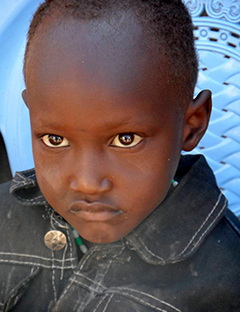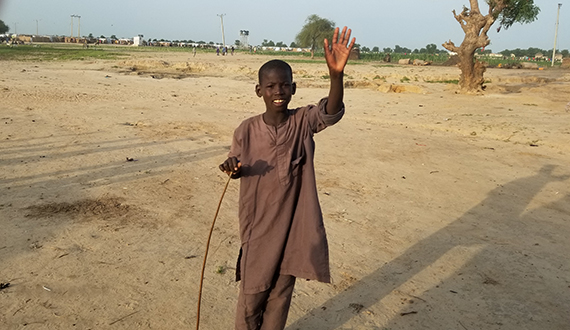Manitoba honors Rotary Peace Fellow for public
Source:: Rotary.org
Carteret, NJ - Chartered June 12, 1963 - Club 5620

The discovery of the poliovirus in Nigeria last summer shocked eradication efforts. Here’s how Rotary is making sure it doesn’t happen
Source:: Rotary.org

Rotary helps wildfire victims Rotary members are mobilizing to help provide relief as wildfires continue to rage throughout
Source:: Rotary.org

A boy awaits the results of tests to determine if he has contracted polio.
By Mike Parry, regional Rotary Foundation coordinator for Wales, Ireland, Scotland, Isle of Man, northern and central England
As an RI representative on a World Health Organization post-polio outbreak surveillance audit in Ethiopia, I saw first-hand the front line difficulties experienced by doctors and local health workers. I also witnessed the very real fear of a child awaiting the result of tests to see if he had contracted polio. On my return to the United Kingdom, I was determined to be as involved as possible in supporting Rotary’s number one humanitarian project.
In the UK, we have a great fundraiser that has been supporting polio eradication and building awareness. I have had the pleasure of working with David Price, a former Ambassadorial Scholar and current member of the E-Club of London Centennial, to promote the sale of fabric crocus buttonholes. Since 2012 the high-quality fabric Rotary Crocuses have raised around £1.2 million (about $1.6 million) and been distributed in 15 countries.
A box of the fabric Crocuses.
The Crocus was chosen as the purple colour matched the dye painted on the fingers of children who have been immunised. As members of …read more
Source:: Rotary International Blog

A boy in the displaced persons camp waves at the visiting team.
By Carol Pandak, Director of PolioPlus for Rotary International
As we drove away from the Muna camp for Internally Displaced Persons on the outskirts of Maiduguri, the capital city of restive Borno State in Nigeria, a young boy dressed in brown tunic and pants gave us a friendly, somewhat surprised wave.
At 60,000 inhabitants, the camp had doubled in size since the same time last year as conflict continues to push people from their homes. My visit to the camp was the final stop on a trip to Nigeria with the Chair of Rotary’s International PolioPlus Committee, Mike McGovern, on the occasion of the country having not reported a case of polio for a year. But while we marked the date on the calendar, the visit was not celebratory. Nigeria had reported no cases of polio for two years between 2014 and 2016, and all were disappointed by the new cases identified in Borno in August of last year.
We saw and did many things during the trip with the deputy state governor, including immunizing newborn babies in the camp to protect them from polio. We drank water from a …read more
Source:: Rotary International Blog

Michelle Provan and her dad, Robert, who died in 2006 from pulmonary complications stemming from postpolio syndrome.
By Michelle Provan
During the 50’s, shortly after World War II, polio had a rampant outbreak in Chicago. I remember my dad, Robert Provan, telling the story of how he went to play at Evergreen Park, taking a sip of cool water from a drinking fountain, and believing that is where he caught the deadly disease at age five.
He was diagnosed with the worst type of polio. It instantly affected his entire body, and he was paralyzed from the neck down. He also spent time in an iron lung. My grandparents tried a couple of specialists to no avail. In fact, they were told to institutionalize him, a practice that was common during this time. They were told, “He is a burden to the family, and he belongs in an institute. Just let him die.”
Luckily, my grandparents searched even harder for someone to take on my father’s care, and they found Dr. Charles Pease at Chicago Children’s Memorial (now known as Ann & Robert H. Lurie Children’s Hospital). My father’s condition was grim, but Dr. Pease believed in an approach that had a zero tolerance …read more
Source:: Rotary International Blog

Pakistan and Nigeria replace paper-based reporting with fast, accurate cellphone
Source:: Rotary.org